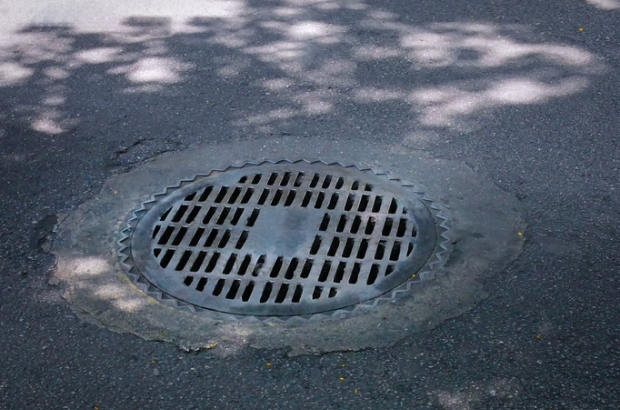- Daily & Weekly newsletters
- Buy & download The Bulletin
- Comment on our articles
€500 million needed to stop sewage flowing into Brussels canal
Brussels’ canals and natural water courses need massive investment to stop water pollution caused by nappies, dead animals and sometimes human faeces as a result of overflowing sewers, the capital’s non-profit association campaigning for clean water in the capital, Canal It Up, is demanding.
“Each year, 100 million cubic metres of wastewater flows directly into the canal and the Senne and so eventually into the sea,” said the group set up in 2021 that as well as demanding clean, plastic-free water also monitors wastewater disposal and organises canal clean-up operations.
Canal It Up founder Pieter Elsen told Bruzz that the huge amount of waste floating in the canal after excessive rain was caused by rain water and wastewater ending up in the same sewer pipes.
As Brussels' sewers are not built to cope with heavy rain in a short time, the excess water ends up flowing, untreated, towards the canal. This causes sewage overflows first to the canal and then to the Senne - on average three or four times a month.
"At Place Sainctelette, for example there is a sewage overflow," said Elsen. "Only a hole in the wall separates the sewer from the canal. If the water level in the sewers is too high, everything goes through this hole. And with this, everything that floats in Brussels sewers: damp wet wipes, plastic or even dead animals such as rats."
But even faced with this sorry situation “there is no vision, no plan or goal to stop canal pollution,” Elsen added.
“It is clearly not a priority for Brussels politicians. The streets and squares of Brussels, such as Place Royale and Schuman, are being developed so that rain water flows to the sewers. This must change,” he said, calling for politicians to act for example by funding an expanded sewer capacity.
Elsen said that €500 million would go a long way to solve the problem. “We do not need to spend as much as London or Paris has done,” he added. The British capital has invested bout €5 billion in a "super-sewer" under the Thames to reduce 110 million cubic metres that ends up in the river every year to five million.
“Paris is also constructing a 50,000m³ water tank at a cost of €1.2 billion to recover rainwater,” Elsen noted, adding: “The arrival of the Olympic Games has given a boost to this project as the Seine must be clean enough for swimming competitions.”
The Canal It Up founder also cited Copenhagen as another interesting example. The city is investing in rainwater collection above ground. This allows water to filter or drain progressively so that the sewers are not overloaded.
For Elsen, Brussels would benefit from a solution combining rainwater collection, water softening and significant infrastructure works to create additional sewer capacity.
For its part, the Brussels company responsible for the production and distribution of drinking water, Vivaqua, said it was working to reduce wastewater disposal in water.
It underlined the efforts used to combat “black spots” where sewage is continuously flowing into natural water. Vivaqua has already installed three pumping stations to direct wastewater towards the sewers, with two still under construction.
Vivaqua has also installed a special filter at Place Sainctelette, adding: “These improvements have enabled us to reduce sewage discharge into the Senne in light or medium rain, and to improve the path of water in heavy rain.
“Because of these interventions, the amount of sewage ending up in the Senne has been halved and the number of overflows has been cut by 60%. The company added that €13 million has been invested in the last legislature “to limit the discharge ending up in the natural environment”.


















